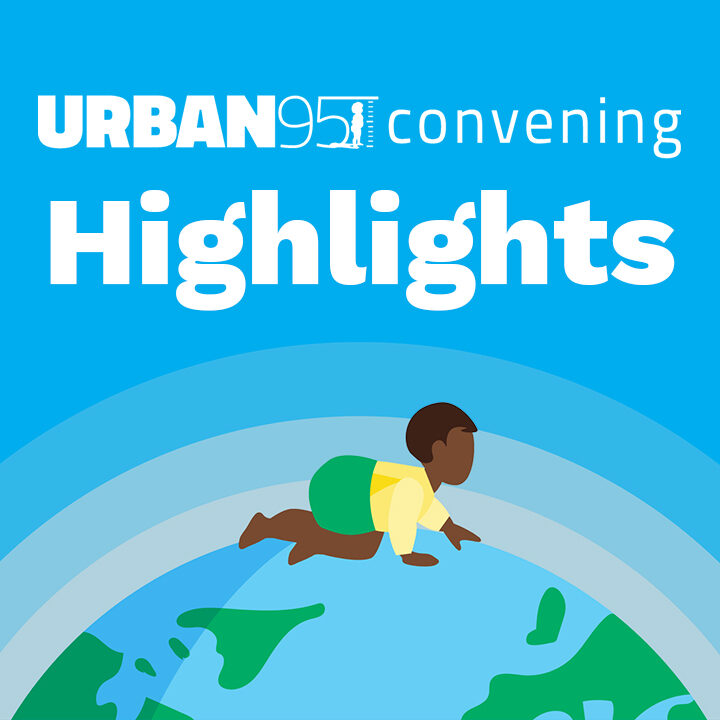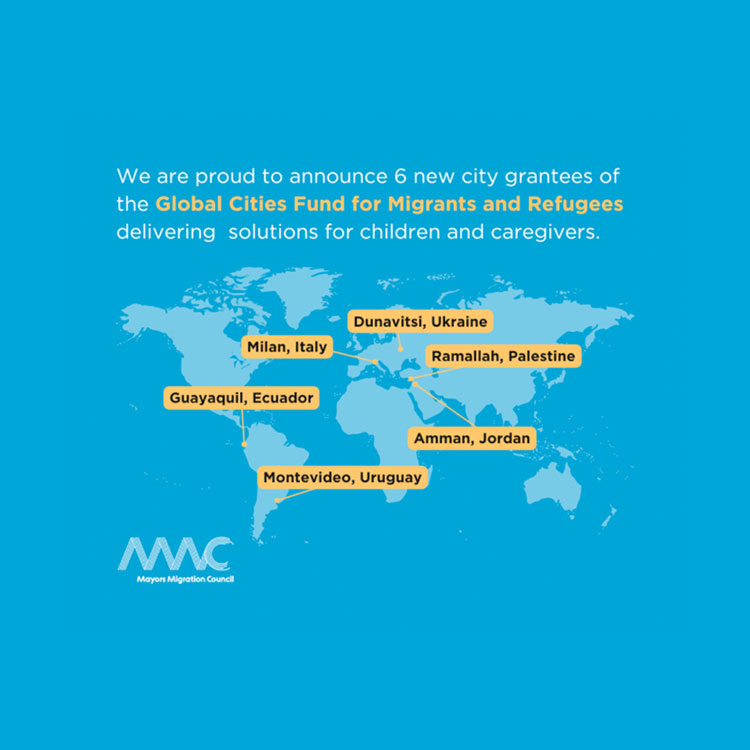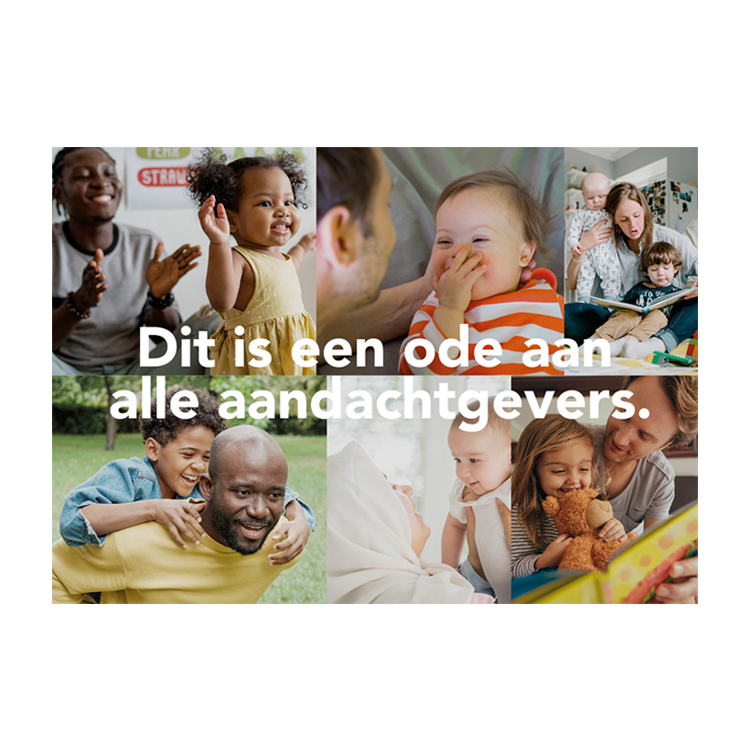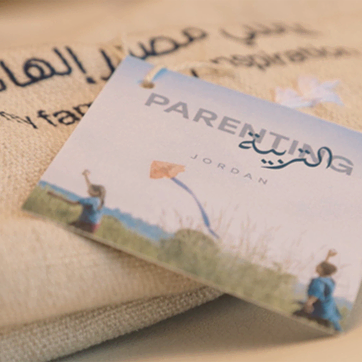“We can survive two weeks without food, we can survive two days without water, but we can’t survive more than two minutes without breathing. It is fundamental!” Rosamund Adoo-Kissi-Debrah, an advocate for health and air quality and co-founder of the Ella Roberta Family Foundation, convinced a global audience about the importance of clean air at the recent Urban95 Convening.
Air pollution is a global health emergency and young children are the most vulnerable. Polluted air causes long-lasting damage to babies and toddlers, as their brains and bodies are still developing. Inhaling a breath of air is the first public good everyone experiences when they are born. But around the world, 93% of children are breathing polluted air every day.
Even in the womb, children are not protected: maternal exposure to pollutants is almost as bad for a foetus as the mother smoking. Breathing air that is lower to the ground, young children are exposed to 30% more black carbon from car exhausts than adults.
Clean air for babies, toddlers and caregivers in cities
In September, over 500 people joined our Urban95 Convening 2021, where experts and advocates shared knowledge on this invisible pandemic and why clean air for babies, toddlers and caregivers in cities is essential. They issued a call for action, showcased inspiring ideas, and took forward the conversation on how we can ensure clean air for all.
Two global online gatherings were supplemented by local sessions. So far these have been held in Peru, Brazil – accompanied by a report from the University of São Paulo – and India, where the representatives of the Foundation and the Clean Air Fund published this joint article in the Indian Express. Further sessions are planned in Jordan, Israel and the Netherlands.
These gatherings encouraged participants to:
- Connect: Meeting peers around the world interested in exploring the intersection of clean air and the early years
Almost 60% of stakeholders in the Convening were engaging on the intersection of these topics for the first time, creating a platform to strengthen relationships between our partners and air quality stakeholders. The line-up included experts in public health and environmental issues – such as Carlos Dora, who articulated a global response to air pollution – and activists such as Rosamund Adoo-Kissi-Debrah, who campaigns for clean air as everyone’s fundamental right.
JP Amaral introduced us to Alana’s new global advocacy campaign, Free to Play Outside, which aims to raise public awareness and empower families around the world to fight for clean air. It involves travelling Brazil with a large grey ball, as a visible representation of invisible air pollution. Starting in Sao Paulo, the ball has since travelled to Boa Vista, Fortaleza and Niteroi.
Discussions at the local events reinforced the necessity of a cross-sectoral approach and data collection, analysis and monitoring to inform public awareness and collective action.
- Inspire: Sharing knowledge and know-how on improving air for the early years
We showcased Rinku’s journey as a way to dive into real-life scenarios highlighting the sources of air pollution and health hazards that can harm toddlers in their city neighbourhoods. Speakers made an urgent plea to take immediate steps towards embracing new ideas and finding practical solutions.
For example, Susana Lopez from PROLIMA described an intervention to treble the amount of green space in Lima, from 3m2 to 9m2 per inhabitant. This will reduce temperatures in the city and improve air quality, including by increasing air flow through polluted central areas. Camila Acosta discussed how the Health and Sustainability Institute in Brazil is monitoring air quality in the Amazon – an initiative they aim to replicate in cities in other parts of the country, such as Niteroi, by connecting to different sectors and providing more technical knowledge.
We learned from ancient wisdom, passed from generation to generation. Joziléia Kaingang explored the relationship between nature, air quality and the early years in indigenous culture, pointing towards paths for preservation and a more harmonious and less harmful lifestyle. We all took a moment to connect with mother Earth and understand our responsibility to care for the environment with the Chimba-Santillán family.
“We can heal the Earth, simple actions can have an impact if we are guided by our feelings and connection to other living beings.”
- Act: Building momentum for change. Demand for clean air inspires collaboration
It is necessary to provide momentum to existing clean air initiatives with Urban95 perspectives and scale up action.
In a discussion on how to improve air for the early years, Iyad Khierbek, Pallavi Pant and Mayor Claudio Castro pointed out that collecting data and engaging communities is a good way to start. The question remains: how can we integrate clean air and early years action at city level to advance public health and climate change mitigation agendas?
As Pallavi Pant put it, “How do we bring children and marginalised groups up front? By identifying communities in need and equipping them so they can lead the demand for change.”
Aiming to increase awareness and knowledge exchange on air quality at a local and global level, we launched the AirBeam Swap Initiative, the first ever Urban95 community to collect data on the air caregivers and young children breathe every day.
What you can do?
How do we balance long-term actions with short-term urgent responses that help in the immediate future?
One way is to take part in the Celebrate Public Life campaign, which aims to find out what public places people love so we can make more of them. You can pin your favourite places and nominate people who go the extra mile to improve public life for all. The resulting data can spotlight the open spaces most frequented by babies, toddlers and caregivers, and provide locations of where we should be monitoring air quality in cities.
Join us in taking collective action to ensure clean air for the next generations.
The Urban95 Convening in data:





